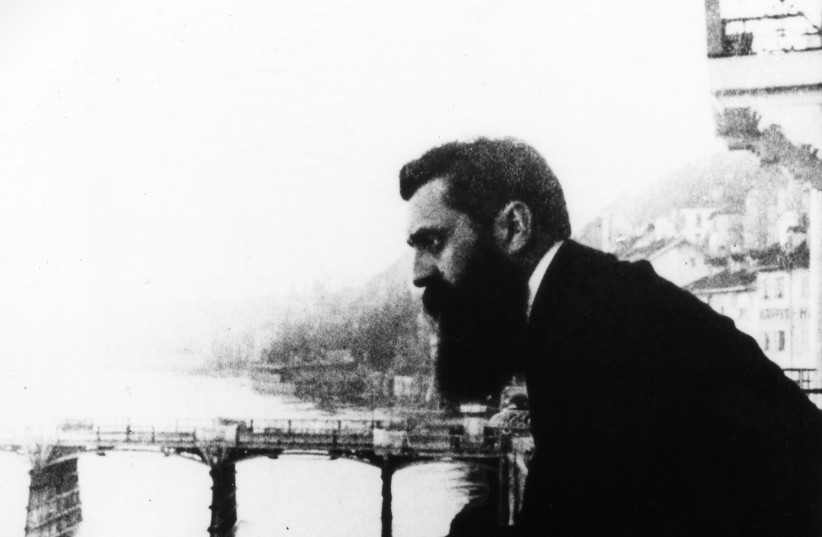This Sunday, 1,000 delegates will mark the First Zionist Congress’s quasquicentennial – its 125th anniversary. At the Monday night gala, President Isaac Herzog and Swiss leaders should celebrate the Jewish people’s progress since what Herzl called these “three days of awakening Jewish history.” When invited to participate in the opening plenary, I considered following Herzl’s original mandate by dressing formally in my tuxedo. But we’re not the demoralized, paralyzed Jews of 1897 anymore. We don’t need to dress up to prop ourselves up. Zionism returned us to history, sovereignty and responsibility.
I hope, however, that beyond patting ourselves on the back, the conference will point the way forward to a renewed, relevant, twenty-first-century Zionism.
Let’s resist the temptation to focus on our enemies – even if some Boycotters protest. The Herzlian Jew-jitsu began with our determination to set our own agenda, to master our destiny. Zionism must be more than anti-anti Zionism or anti-antisemitism.
Even while reeling from the 1903 Kishinev pogroms, Herzl warned that “It is distasteful to us to make political capital out of disasters.” Zionism must also be more than Israel advocacy, cheerleading 101, or advanced bureaucratic gamesmanship, perpetually-scrambling for Jewish communal dollars or cushy do-nothing jobs.
Last summer, I steeped myself in Theodor Herzl’s Zionist writings, as the editor of a three-volume set inaugurating the ambitious Library of the Jewish People (www.theljp.org). The first copies of these beautifully-bound books arrived this week, in time for the Congress. Soon, they will be widely available.

Zionism’s two-sidedness
Herzl’s duality shaped Zionism’s two-sidedness. This lawyer-playwright was both doer and dreamer. We must be both.
Merely convening the Basel Congress took courage. Germany’s hyper-assimilated Reform rabbis and their super-rigid ultra-Orthodox rivals finally united over something, anti-Zionism, and ran the conference out of its initial location, Munich. Although Herzl claimed to be most terrified about mispronouncing the Hebrew prayers when he was called to the Torah in Basel’s temple before the Congress, he listed a dozen ways a failed Congress could embarrass himself and his people. The high stakes made the Congress an even greater success.
But we should ask ourselves: When was the last time we attended any Jewish conference that felt so significant that we feared failure – then felt exhilarated by the outcome? We don’t need another bore-athon at Basel.
Herzl called Zionism “the Jewish people on the march.” Zionism wasn’t defensive, reactive, officious, or spoils-oriented. It was dynamic, historic and catalytic. Herzl hoped to talk the Jewish people’s way into statehood, insisting that “For the solution of the Jewish Question we Zionists desire not an international association but international discussion.”
AND SHAPING that conversation, transforming the Jewish Question into a Zion Question, Herzl taught that “Zionism is a return to Jewishness even before there is a return to the Jewish land.”
Here, then, is the Jewish-people-wide conversation the delegates Basel should launch.
First, we need to diagnose the state of Jewish affairs in Israel and abroad candidly, to define today’s Jewish Question. In Herzl’s Europe, it was about Jew-hatred. Friends and foes wondered “what’s wrong with the Jews that makes them so hated,” while Jews countered: “what’s wrong with the world that makes us so unloved?”
True, Jew-hatred persists, but today’s toughest Jewish Question is about us, not them: how could it be that although we finally came home, so many Jews don’t feel at home in their Jewishness. So many Jews have never been so comfortable, free and prosperous, and have never felt so rooted in America, England, Australia and, of course, Israel. Yet, so many Jews today feel lost, alienated, cut off – from themselves, their souls and their Jewish home base.
That soul-crisis is not the sole crisis but it’s our toughest crisis. That’s where Herzl’s call to return to Jewishness resonates: if Political Zionism brought Jews home after homelessness and empowered us after powerlessness, we need a robust, compelling Identity Zionism generating a peoplehood-platform to help us find meaning amid meaninglessness, purpose despite purposelessness and rootedness amidst obliviousness, while building community despite epidemic selfishness and loneliness.
And Zionists must return to dreaming, not just doing.
We need new, pioneering, Zionist thinkers and dreamers reconceptualizing our people and our state as solutions to these problems, not just problems themselves. We need activists still defending the state, building the state, perfecting the state – while stretching us to perfect ourselves. We need Zionist salons popping up throughout the Jewish world, bringing pride and pop back to the word “Zionism,” just as Zionism once brought pride and pop back to the word “Jew.”
Bravo to the World Zionist Organization’s chairman, Yaakov Hagoel, and his staff for jumpstarting this dreaming-and-doing process by inviting us back to where the last great Jewish revolution formally began. But all of us must trigger the change.
The needs are pressing, the challenges daunting. But if Theodor Herzl and the despondent dreamers of 1897 could launch a process that created Israel, we owe it to them and to ourselves to dream big and do big, launching a renewed movement that improves the state of the Jewish people – today and tomorrow.
The writer is the editor of the new three-volume set, Theodor Herzl: Zionist Writings, the inaugural publication of The Library of the Jewish People (www.theljp.org).
